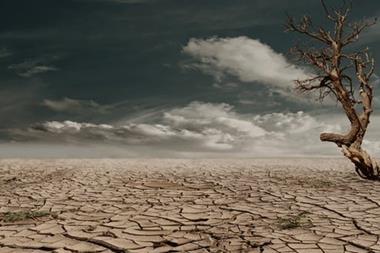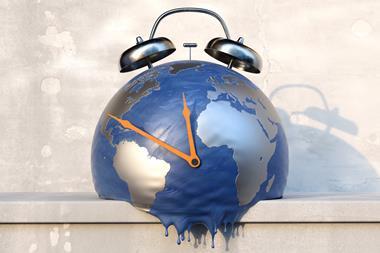In many parts of Europe, human-caused climate change has resulted in annual average temperatures rising by more than 1.5°C - Munich Re
The first half of 2022 saw lower natural disaster losses than in the comparative period of 2021, according to Munich Re. Floods, earthquakes and storms caused overall losses of some $65 billion compared with $105 billion in the loss-heavy previous year. At around $34 billion, insured losses were roughly in line with previous years.
In Europe, extreme heat and arid conditions in early summer led to water scarcity and wildfires, especially in Italy, Spain and Portugal. It is often difficult to put an exact figure on losses from heat and drought as their effects, such as production losses in industry due to a lack of cooling water, take a while to emerge.
Presumably in part due to a large temperature increase in May and June, there was a massive glacier collapse on Marmolada, the highest mountain in the Dolomites (Italy).
The current heatwave (July 2022) is due to an unusual mix of high pressure over central Europe coupled with an area of low pressure close to western Europe. This enables hot air from the Sahara and North Africa to penetrate into higher latitudes.
In many parts of Europe, human-caused climate change has already resulted in annual average temperatures rising by more than 1.5°C compared with when systematic weather records began towards the end of the 19th century – above the average global warming of 1.2°C.
Ernst Rauch, Chief Climate Scientist at Munich Re, and head of the Climate Solutions Unit: “What used to be warm days will be hot days, what used to be hot days will be extremely hot days. Droughts and wildfires are a direct consequence of this.”
Winter storms, particularly in February, swept across north and northwest Europe bringing hurricane-force winds in places. Ireland, England, parts of Belgium, the Netherlands, northern Germany and the Baltic coast were hit especially hard. The outcome: overall losses of US$ 5.2bn.
”The natural disaster picture for the first half of 2022 is dominated by weather-related catastrophes,” said Torsten Jeworrek, member of the board of management at Munich Re.
”Extreme tornadoes in the US caused billions in damage, parts of eastern coastal Australia were submerged by floods, and southern Europe struggled with extreme heat, wildfires and drought.
”The recently published IPCC report warned of the need for insurers to adapt their loss models to adequately assess the changing risk. Loss prevention is a fundamental component in mitigating the economic effects of climate change.
”It is therefore extremely worrying that insurance penetration in developing and emerging nations is stagnating at well below 10%, and that even in industrial countries there is much room for improvement.”




















No comments yet